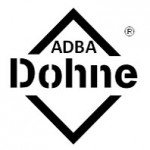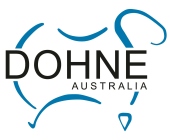Dohnes handle the dry at Cunnamulla
9th September 2017 – QLD Country Life
DOHNES have proven their ability to handle the sometimes harsh conditions on the Clark family’s property “Pabra”, near Cunnamulla in south west Queensland.
They run between 2000 and 3500 ewes, depending on the season, with the operation traditionally running a Merino flock.
In 2004 the Clarks began to introduce Dohne rams to their Merino operation, looking to move to a dual-purpose flock.
“We were looking to limit our exposure to the wool market, but I still wanted to keep an interest in wool,” Mr Clark said.
“I didn’t want to head towards a sheep with medulated fibres and I didn’t want to be solely a meat producer.”
Mr Clark said he selected Dohnes as he liked their constitution and wool type.
“They had a better wool type than some other dual-purpose breeds, and because I wanted to keep a little focus on wool we went with the Dohnes,” he said.
“We’re finding that they do seem to convert feed a bit better, and in the last six months our stock have been in quite good condition, while some of the more Merino types haven’t.
“We’re comfortable with how they handle the dry and cover the country.”
Mr Clark said they looked for a big-framed sheep with a plain body, and this had helped them to cease mulesing.
“We modified our mules and got smaller, but it got to the point where we just didn’t need to do it and we stopped in 2008,” he said.
While Mr Clark said they had finished some of their wether lambs before, but this wasn’t their aim.
“We’re geared up to sell the wethers as store lambs,” he said.
But when they had finished lambs, Mr Clark said the Dohnes finished easier than a Merino lamb, and were more marketable.
The surplus female sheep are also sought-after, according to Mr Clark.
“Our cull ewe weaners have gone to a repeat buyer for the last few years, who joins them to terminal sires.
“Our older ewes also sell well too – there’s always demand for them.”
“They do seem to convert feed a bit better, and in the last six months our stock have been in quite good condition, while some of the more Merino types haven’t. We’re comfortable with how they handle the dry and cover the country.”
Leandre, Josephine, Tex and James Clark after shearing in January this year.












